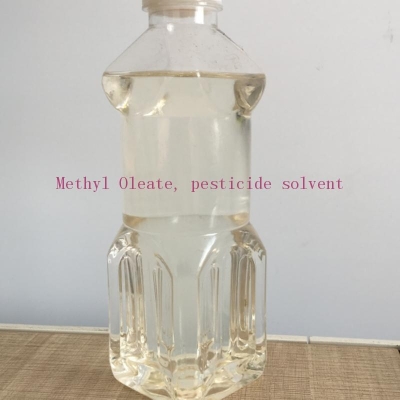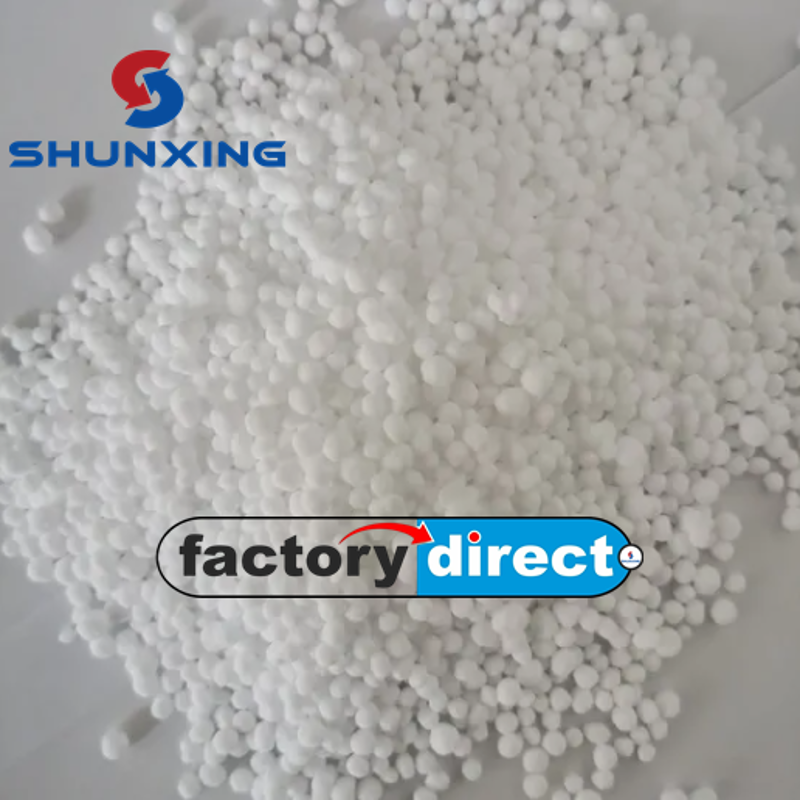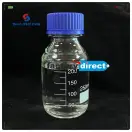-
Categories
-
Pharmaceutical Intermediates
-
Active Pharmaceutical Ingredients
-
Food Additives
- Industrial Coatings
- Agrochemicals
- Dyes and Pigments
- Surfactant
- Flavors and Fragrances
- Chemical Reagents
- Catalyst and Auxiliary
- Natural Products
- Inorganic Chemistry
-
Organic Chemistry
-
Biochemical Engineering
- Analytical Chemistry
-
Cosmetic Ingredient
- Water Treatment Chemical
-
Pharmaceutical Intermediates
Promotion
ECHEMI Mall
Wholesale
Weekly Price
Exhibition
News
-
Trade Service
Scholars engaged in nanotechnology research seldom pay attention to agriculture, and experts who conduct agricultural application research rarely delve into nanotechnology.
This phenomenon is gradually changing in recent years
.
From November 17th to 18th, the first International Conference on Nanotechnology and Agricultural Sustainable Development was held in Beijing
.
The reporter learned from the meeting that the Chinese Academy of Agricultural Sciences has successfully developed a number of new formulations of nano-pesticides, such as highly effective and safe insecticides, fungicides, and herbicides, which attracted great attention from representatives at home and abroad
.
Research results show that nano-pesticide formulations can significantly enhance the efficacy of the drug, extend the duration of validity, improve bioavailability, eliminate harmful solvents and additives, thereby greatly saving the dosage of pesticides, reducing agricultural residues and environmental pollution
.
It is reported that the Chinese Academy of Agricultural Sciences launched the first "973" project in the field of nano-agriculture in 2014, "Basic research on the use of nanomaterials and technologies to improve the effectiveness and safety of pesticides", and is currently committed to industrial development and Application promotion research
.
"The comprehensive promotion and application of nano-pesticides will help to achieve the improvement of quality and efficiency of traditional chemical pesticides, and to save energy and reduce emissions, and to revitalize the green pesticide industry
.
" The chief scientist of the above-mentioned "973" project, the agricultural environment and sustainability of the Chinese Academy of Agricultural Sciences Cui Haixin, a researcher at the Institute of Development Research (hereinafter referred to as the Institute for Environmental Development), told a reporter from China Science Daily
.
"Mystery is also mysterious, simple and simple" Which one is easier to absorb, drinking chicken soup or eating chicken? There is no doubt about the answer to this question.
Cui Haixin explained to reporters that the chicken soup contains nano-materials, and the seasoning used to increase freshness also contains nano-materials
.
In addition, foods such as steamed bread, milk, and beverages all contain nano-materials
.
According to reports, nanometer is a unit of length, that is, 10-9 meters.
Nanotechnology is the science of studying material properties and manufacturing precision materials and machines in a space of 0.
1 to 100 nanometers
.
Nanotechnology, information technology, and biotechnology together constitute the three leading disciplines at the forefront of modern science and technology
.
The reporter learned at the meeting that nanotechnology is a technology for studying the properties and applications of materials in the nanoscale range.
It mainly includes the preparation, compounding, processing, assembly, testing and characterization of nanoscale materials to realize nanomaterials in atoms and molecules.
Controllable equipment on the scale, and lay the foundation for its application
.
Nanotechnology has developed rapidly and has penetrated into various fields such as chemical industry, medicine, energy, materials and life sciences, and has brought extremely far-reaching effects on people's lives
.
"When it comes to nanotechnology, it is mysterious and mysterious, and simple and simple
.
" Cui Haixin said that the combination of nanotechnology and traditional agricultural industries is promoting traditional agriculture to continue to nurture new major breakthroughs in many intersecting fields and form emerging high-end agricultural technologies.
The growth point of the system
.
At present, the integrated application of nanotechnology in agriculture is showing a trend of multiple breakthroughs.
One of them is to use the targeted transmission and controlled release functions of nanomaterials to improve the effective utilization of agricultural inputs such as fertilizers, pesticides, veterinary drugs, and feeds.
, Reduce residue and pollution
.
The reporter learned during the interview that the Chinese Academy of Agricultural Sciences took the lead in conducting cross-research on nanotechnology and agricultural science in China
.
In 2014, the Chinese Academy of Agricultural Sciences launched the first "973" project in the field of nano-agriculture, "Basic research on improving the effectiveness and safety of pesticides using nanomaterials and technologies
.
" Responsible for the above-mentioned projects is the Agricultural Nano Innovation Team of the Environmental Development Institute.
They have systematically carried out a forward-looking, basic and applied multi-disciplinary cross-discipline based on the use of nanotechnology to improve the effective utilization of pesticides and reduce residual pollution and other major national scientific and technological needs.
With collaborative innovation research, important breakthroughs have been made in the development of nano-pesticide theory and technological innovation
.
At present, the team has established a core technology platform for pesticide nano-ization such as the preparation technology of insoluble pesticide water-based nanoemulsion, the preparation technology of long-acting nanocapsules, the preparation technology of slow-release nanospheres, and the nano-suspension technology with independent intellectual property rights.
The related technology has obtained national authorized invention patents
.
This phenomenon is gradually changing in recent years
.
From November 17th to 18th, the first International Conference on Nanotechnology and Agricultural Sustainable Development was held in Beijing
.
The reporter learned from the meeting that the Chinese Academy of Agricultural Sciences has successfully developed a number of new formulations of nano-pesticides, such as highly effective and safe insecticides, fungicides, and herbicides, which attracted great attention from representatives at home and abroad
.
Research results show that nano-pesticide formulations can significantly enhance the efficacy of the drug, extend the duration of validity, improve bioavailability, eliminate harmful solvents and additives, thereby greatly saving the dosage of pesticides, reducing agricultural residues and environmental pollution
.
It is reported that the Chinese Academy of Agricultural Sciences launched the first "973" project in the field of nano-agriculture in 2014, "Basic research on the use of nanomaterials and technologies to improve the effectiveness and safety of pesticides", and is currently committed to industrial development and Application promotion research
.
"The comprehensive promotion and application of nano-pesticides will help to achieve the improvement of quality and efficiency of traditional chemical pesticides, and to save energy and reduce emissions, and to revitalize the green pesticide industry
.
" The chief scientist of the above-mentioned "973" project, the agricultural environment and sustainability of the Chinese Academy of Agricultural Sciences Cui Haixin, a researcher at the Institute of Development Research (hereinafter referred to as the Institute for Environmental Development), told a reporter from China Science Daily
.
"Mystery is also mysterious, simple and simple" Which one is easier to absorb, drinking chicken soup or eating chicken? There is no doubt about the answer to this question.
Cui Haixin explained to reporters that the chicken soup contains nano-materials, and the seasoning used to increase freshness also contains nano-materials
.
In addition, foods such as steamed bread, milk, and beverages all contain nano-materials
.
According to reports, nanometer is a unit of length, that is, 10-9 meters.
Nanotechnology is the science of studying material properties and manufacturing precision materials and machines in a space of 0.
1 to 100 nanometers
.
Nanotechnology, information technology, and biotechnology together constitute the three leading disciplines at the forefront of modern science and technology
.
The reporter learned at the meeting that nanotechnology is a technology for studying the properties and applications of materials in the nanoscale range.
It mainly includes the preparation, compounding, processing, assembly, testing and characterization of nanoscale materials to realize nanomaterials in atoms and molecules.
Controllable equipment on the scale, and lay the foundation for its application
.
Nanotechnology has developed rapidly and has penetrated into various fields such as chemical industry, medicine, energy, materials and life sciences, and has brought extremely far-reaching effects on people's lives
.
"When it comes to nanotechnology, it is mysterious and mysterious, and simple and simple
.
" Cui Haixin said that the combination of nanotechnology and traditional agricultural industries is promoting traditional agriculture to continue to nurture new major breakthroughs in many intersecting fields and form emerging high-end agricultural technologies.
The growth point of the system
.
At present, the integrated application of nanotechnology in agriculture is showing a trend of multiple breakthroughs.
One of them is to use the targeted transmission and controlled release functions of nanomaterials to improve the effective utilization of agricultural inputs such as fertilizers, pesticides, veterinary drugs, and feeds.
, Reduce residue and pollution
.
The reporter learned during the interview that the Chinese Academy of Agricultural Sciences took the lead in conducting cross-research on nanotechnology and agricultural science in China
.
In 2014, the Chinese Academy of Agricultural Sciences launched the first "973" project in the field of nano-agriculture, "Basic research on improving the effectiveness and safety of pesticides using nanomaterials and technologies
.
" Responsible for the above-mentioned projects is the Agricultural Nano Innovation Team of the Environmental Development Institute.
They have systematically carried out a forward-looking, basic and applied multi-disciplinary cross-discipline based on the use of nanotechnology to improve the effective utilization of pesticides and reduce residual pollution and other major national scientific and technological needs.
With collaborative innovation research, important breakthroughs have been made in the development of nano-pesticide theory and technological innovation
.
At present, the team has established a core technology platform for pesticide nano-ization such as the preparation technology of insoluble pesticide water-based nanoemulsion, the preparation technology of long-acting nanocapsules, the preparation technology of slow-release nanospheres, and the nano-suspension technology with independent intellectual property rights.
The related technology has obtained national authorized invention patents
.







